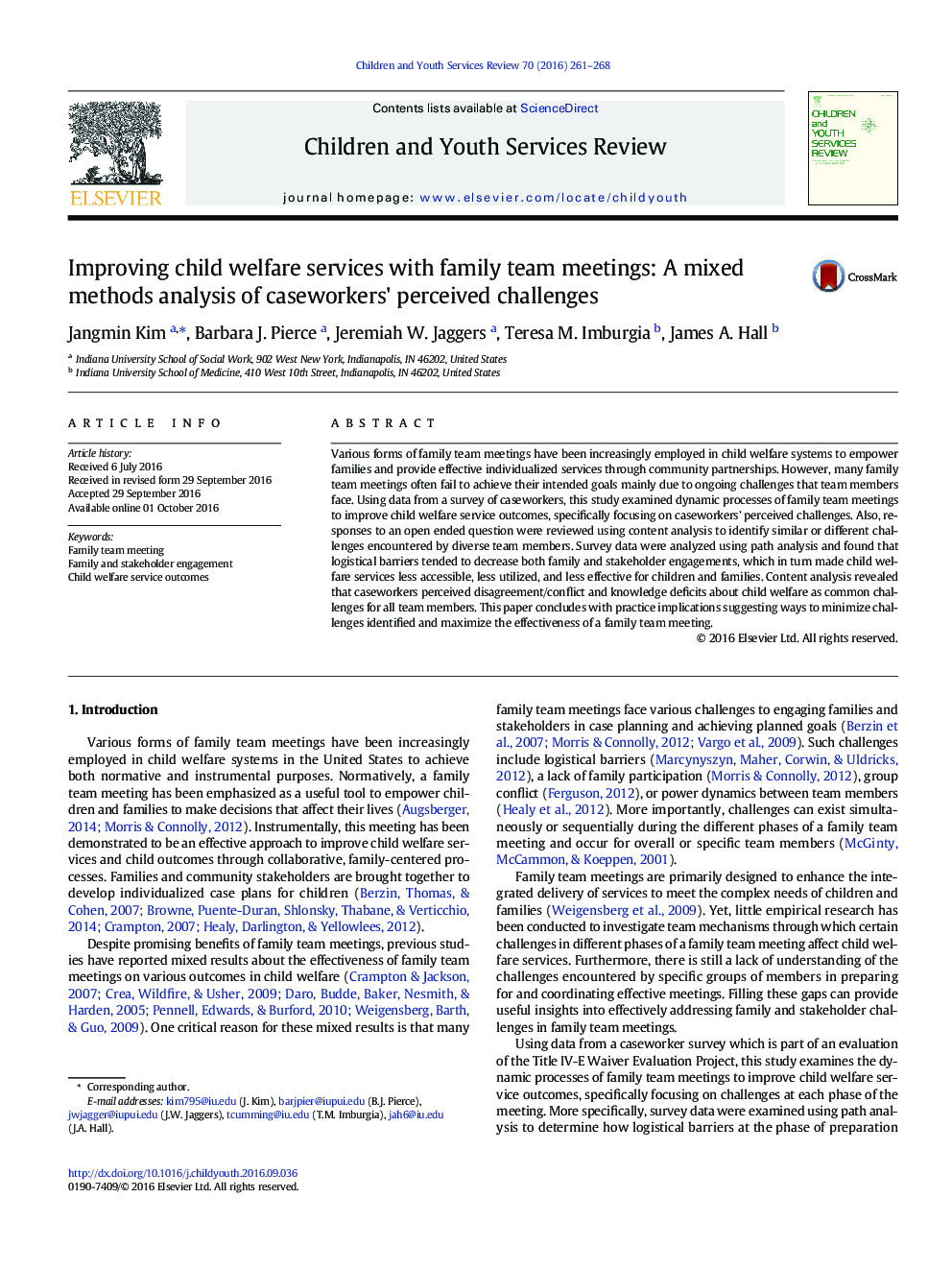| Article ID | Journal | Published Year | Pages | File Type |
|---|---|---|---|---|
| 4936641 | Children and Youth Services Review | 2016 | 8 Pages |
Abstract
Various forms of family team meetings have been increasingly employed in child welfare systems to empower families and provide effective individualized services through community partnerships. However, many family team meetings often fail to achieve their intended goals mainly due to ongoing challenges that team members face. Using data from a survey of caseworkers, this study examined dynamic processes of family team meetings to improve child welfare service outcomes, specifically focusing on caseworkers' perceived challenges. Also, responses to an open ended question were reviewed using content analysis to identify similar or different challenges encountered by diverse team members. Survey data were analyzed using path analysis and found that logistical barriers tended to decrease both family and stakeholder engagements, which in turn made child welfare services less accessible, less utilized, and less effective for children and families. Content analysis revealed that caseworkers perceived disagreement/conflict and knowledge deficits about child welfare as common challenges for all team members. This paper concludes with practice implications suggesting ways to minimize challenges identified and maximize the effectiveness of a family team meeting.
Related Topics
Health Sciences
Medicine and Dentistry
Perinatology, Pediatrics and Child Health
Authors
Jangmin Kim, Barbara J. Pierce, Jeremiah W. Jaggers, Teresa M. Imburgia, James A. Hall,
